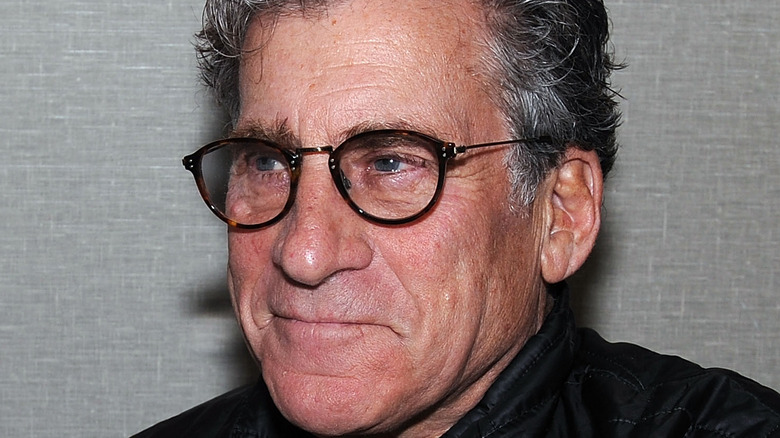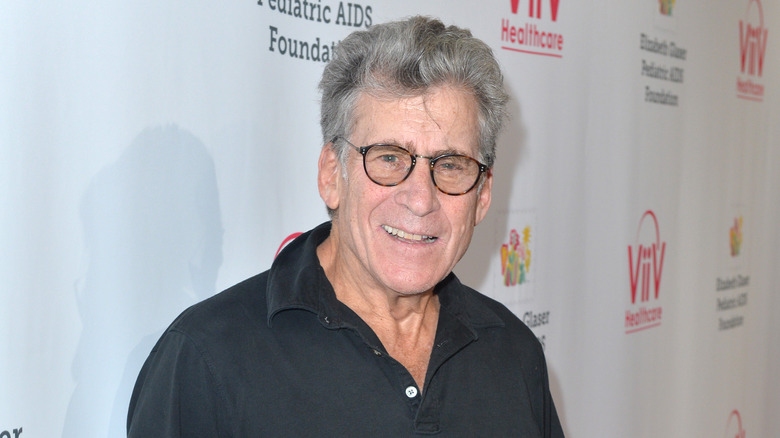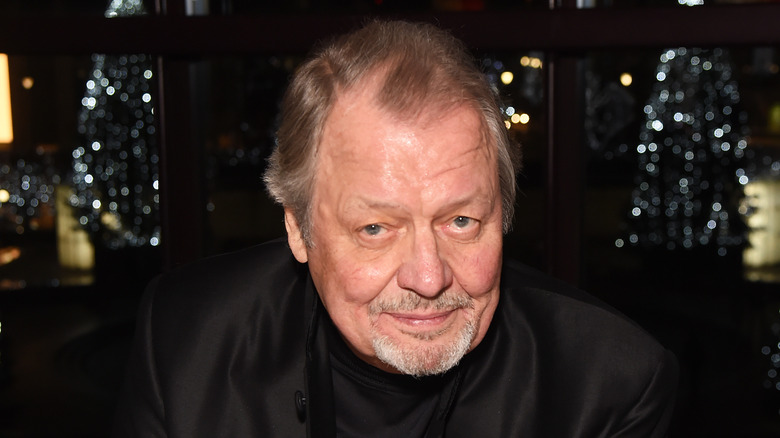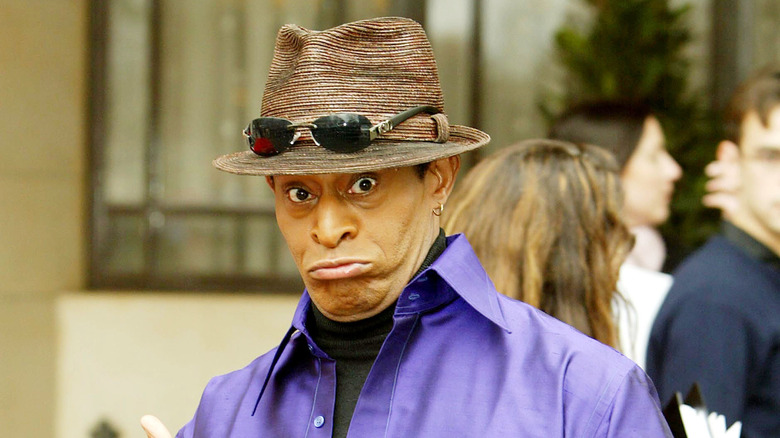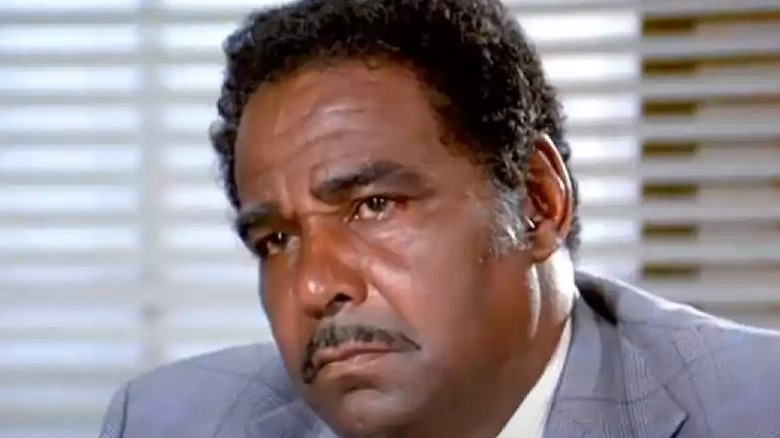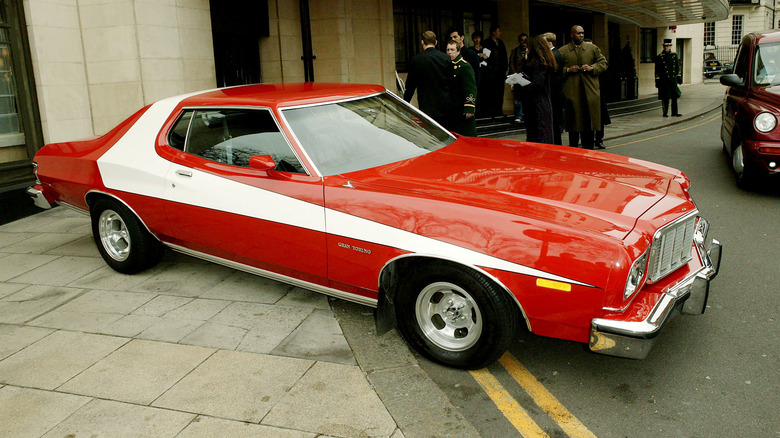What Happened To The Cast Of The Original Starsky And Hutch?
"Starsky & Hutch," the TV series, ran for 92 episodes (plus a 70-minute pilot movie) in the middle-to-late 1970s, according to IMDb. In the early seasons, the series wasn't just a popular TV show: It was a cultural touchstone. Fans were drawn to the chemistry between the two male leads — Paul Michael Glaser (Starsky) and David Soul (Hutch). As Glaser wrote on his blog, the two were openly loving and affectionate to each other at a time when such depictions of masculinity were not the norm on TV.
Unfortunately, popularity alone is not enough to sustain a TV show. The moral landscape of the 1970s called attention to violence on TV, and in later seasons, the show took a less-violent tone — possibly a bad move for a cop show. Further, behind the scenes, there were personnel issues with the cast, in particular with Glaser (Starsky) making no secret about his unhappiness with the show and having difficulty dealing with sudden fame, as Shropshire Star reported.
While some TV shows make bankable stars out of their actors, who later go on to have long careers, the main stars of "Starsky & Hutch" all found themselves with less frequent and lower profile work after the show.
Here is what happened to the cast of the original "Starsky & Hutch."
Paul Michael Glaser suffered a devastating personal tragedy
Paul Michael Glaser had racked up a series of stage, film, and TV credits by the time he was cast in "Starsky & Hutch." He was unhappy with his role on the show, however, and he made no secret that he wanted out of his contract. When the show ended, he continued to work, both as a director and an actor, although his work was less frequent and often in lower profile roles.
In 1981, tragedy struck the Glaser family. As The L.A. Times reported, Glaser's then-wife, Elizabeth, required a blood transfusion while giving birth. At the time, the AIDS epidemic was just beginning, and the methods of transmission of the HIV virus were not fully understood. As such, Elizabeth was given HIV-tainted blood. She then unknowingly passed the virus on to her children, via breast milk. The couple's daughter, Elizabeth, died of AIDS right around the time of her 7th birthday, and Elizabeth herself died of the disease years later.
Before she died, Elizabeth had founded the Elizabeth Glaser Pediatric AIDS Foundation, of which Glaser still serves as the honorary chairman.
David Soul moved across the ocean
David Soul (Hutch) didn't enter the entertainment industry hoping to make it as an actor. He actually wanted to make it as a musician. As he wrote on his blog, when he made his first television appearance on "The Merv Griffin Show," he told the audience who he was and what he was about. "My name is David Soul, and I want to be known for my music," he said.
Indeed, he did become known for his music — to a point. While "Starsky & Hutch" was still a thing, Soul released a handful of singles, some of which charted in both the U.S. and the U.K. After the show that made him famous, Soul continued to focus on music, touring across the world while at the same time continuing to make TV guest appearances, according to IMDb. In the 1990s, the Chicago-born actor decided that his future lay across the Pond, and set out for the U.K. to forge a career on the London stage, as BBC News reported. According to the Independent, Soul even became a British citizen.
Soul died on January 4 at the age of 80, ABC News reported. The next day, his wife, Helen Snell, released a statement addressing his passing. "David Soul — beloved husband, father, grandfather and brother — died yesterday after a valiant battle for life in the loving company of family," she wrote. "He shared many extraordinary gifts in the world as actor, singer, storyteller, creative artist and dear friend. His smile, laughter and passion for life will be remembered by the many whose lives he has touched."
Antonio Fargas made a career out of spoofing himself
Before he became breakout character Huggy Bear on "Starsky & Hutch," Antonio Fargas had been working for years in a genre of film that is likely uncomfortable to talk about today: Blaxploitation. According to IMDb, he'd appeared in a couple of such films, including "Foxy Brown," which may go down in history as one of the seminal films in the genre, before making a name for himself as the "jive-talking" pimp-like character who served as a confidential informant on the popular TV show.
Fargas' career continued full steam after "Starsky & Hutch." He continued his television career, appearing on "All My Children" for a while in the 1980s.
When nostalgia came calling in the late 1980s, Fargas decided that there's no harm in parodying himself and appeared in two spoof flicks of the Blaxploitation genre: 1988's "I'm Gonna Git You Sucka" and the Wayans brothers "hood" parody, 1996's "Don't Be a Menace."
Fargas has continued to work in TV and movies, though his credits are infrequent (a couple per year) and on low-profile projects.
Bernard 'Bernie' Hamilton was a renaissance man
Bernard "Bernie" Hamilton played the role of Starsky and Hutch's no-nonsense boss, Captain Harold C. Dobey, in the episodes of the series, but not in the movie-length pilot.
Hamilton was an accomplished film actor even before he landed his role on "Starsky & Hutch," according to The L.A. Times, including some work in the same type of Blaxploitation films that his co-star, Antonio Fargas, also appeared in. Further, he had a lengthy list of bit TV parts before the show.
After "Starsky & Hutch," Hamilton left acting and focused instead on music, spending two decades producing gospel and R&B music.
Though he had put acting behind him decades before, his role on "Starsky & Hutch" followed Hamilton to the grave, in an almost literal sense. As his son, Raoul, told the Times, as his father lay dying, he was still being recognized for his mid-70s role.
"At the hospital last night, one of the doctors came by and said, 'Wow, I remember him from 'Starsky & Hutch,'" Raoul said.
Hamilton died in 2008, at the age of 80.
The iconic car is now in a Las Vegas museum
Sometimes in popular culture, a cool car can be just as much of a "character" in a property as the human actors. There was KITT in "Knight Rider" and the famed DeLorean in the "Back to the Future" franchise.
In the case of "Starsky & Hutch," the 1974 Ford Gran Torino was as much a popular "character" as the show's leads, inspiring merchandise in much the same way that the "Dukes of Hazzard" General Lee car did.
Glaser and Soul, the show's two leads, weren't nearly as fond of the ride, Hot Cars reported. Glaser nicknamed it "the striped tomato," and Soul found the ride in the passenger seat uncomfortably rough.
There is no one "Starsky & Hutch" Grand Torino; the show's producers used multiple such vehicles, beating them up significantly in the process and likely sentencing them to junkyards. One model that did survive was, as recently as January 2021, at a museum on the Las Vegas Strip, according to Hot Cars.
